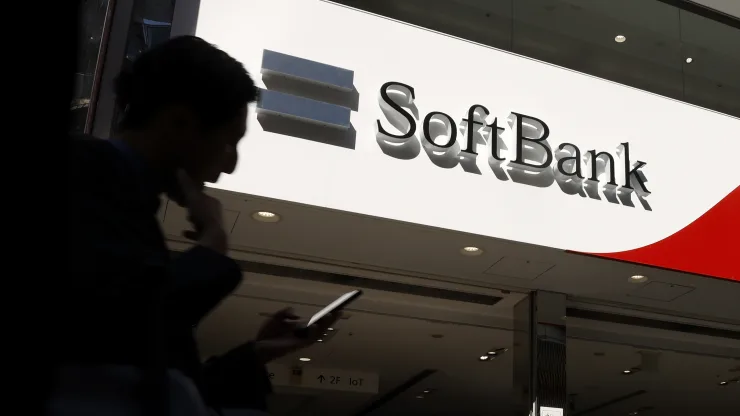Japanese conglomerate SoftBank Group saw its shares soar 5% this week after announcing it will receive a windfall stake in T-Mobile US worth $7.59 billion. The deal highlights a reversal of fortunes for SoftBank and its founder Masayoshi Son, who has weathered missteps like the WeWork debacle but is now reaping rewards from past telecom investments.
The share acquisition comes through an agreement made during the merger of SoftBank’s US telecom unit Sprint and T-Mobile. With the merger complete and certain conditions met, SoftBank will receive 48.75 million T-Mobile shares, doubling its stake in the mobile carrier from 3.75% to 7.64%.
This is a big win for SoftBank as it substantially increases its portfolio of listed assets. SoftBank has worked to shift towards more conservative investments after facing heavy criticism for pouring money into overvalued late-stage startups like WeWork. The Japanese firm was forced to bail out WeWork after its failed IPO in 2019, leading to billions in losses.
However, the T-Mobile windfall, along with the recent blockbuster IPO of SoftBank-owned chip designer Arm, helps balance the books. It also bumps SoftBank’s internal rate of return on its original Sprint investment to 25.5%, a solid result.
SoftBank Trading at Steep Discount Despite Strong Assets
Even with missteps like WeWork, SoftBank still holds an impressive array of assets from its years of prolific venture investing. Yet the Japanese firm trades at a 45% discount to the value of its holdings, presenting an opportunity for investors.
The influx of liquid T-Mobile shares adds more tangible value compared to some of SoftBank’s private startup investments. Having more listed stocks helps improve SoftBank’s loan-to-value ratio, giving it more marginable equity relative to debt obligations.
This could help narrow the gap between SoftBank’s market capitalization and net asset value. The T-Mobile windfall and Arm IPO shore up SoftBank’s balance sheet with listed assets at a time when the gap between its market cap and value of holdings remains substantial.
Son’s Missteps Bring Scrutiny But Vision Still Intact
While the WeWork bet soured investor perception of SoftBank’s investment strategy, Son has shown he still has an eye for disruption. His early investments in Alibaba and Yahoo! set the stage for his later dominance in late-stage startup funding.
However, the WeWork debacle led Son to pledge increased financial discipline and a shift towards AI-focused companies. Recent wins like the Coupang IPO and rising value of holdings like DoorDash reassure investors that Son still knows how to pick winners early.
SoftBank also stands to benefit from Son’s long-term vision on the potential of AI, having acquired chipmakers like Arm to position itself as a leader in the so-called Information Revolution. As AI comes to dominate technology over the next decade, SoftBank’s early moves could pay off handsomely if Son’s predictions come true.
T-Mobile Deal Highlights Importance of Sprint Merger
While US regulators initially balked at the T-Mobile/Sprint merger over competition concerns, the deal is now paying off for SoftBank. The Japanese firm’s persistence in pursuing the merger exemplifies its long-term approach, as the benefits are now apparent.
The combined T-Mobile/Sprint is now a much stronger competitor versus Verizon and AT&T, going from the 4th largest US wireless carrier to 2nd largest. T-Mobile has aggressively expanded its 5G network and subscriber base since completion of the merger in 2020.
SoftBank also benefited by negotiating the share acquisition as part of the original merger agreement, allowing it to substantially increase its T-Mobile stake down the road at minimal additional cost.
Final Thoughts
The T-Mobile share acquisition highlights a reversal of fortunes for SoftBank after missteps like WeWork resulted in negative headlines and billions in losses. While the firm still trades at a discount to the value of its holdings, the T-Mobile windfall and Arm IPO help increase its listed assets versus debt.
Son’s long-term vision and willingness to make bold bets still drive SoftBank, even if investments like WeWork went sour. With the US telco mission accomplished by enabling the Sprint/T-Mobile merger, SoftBank now has both its legacy telecom investment and new T-Mobile shares paying off. Looking ahead, SoftBank is well-positioned in AI and next-gen chips to ride disruption waves far into the future if Son’s predictions on technology evolution prove prescient.


